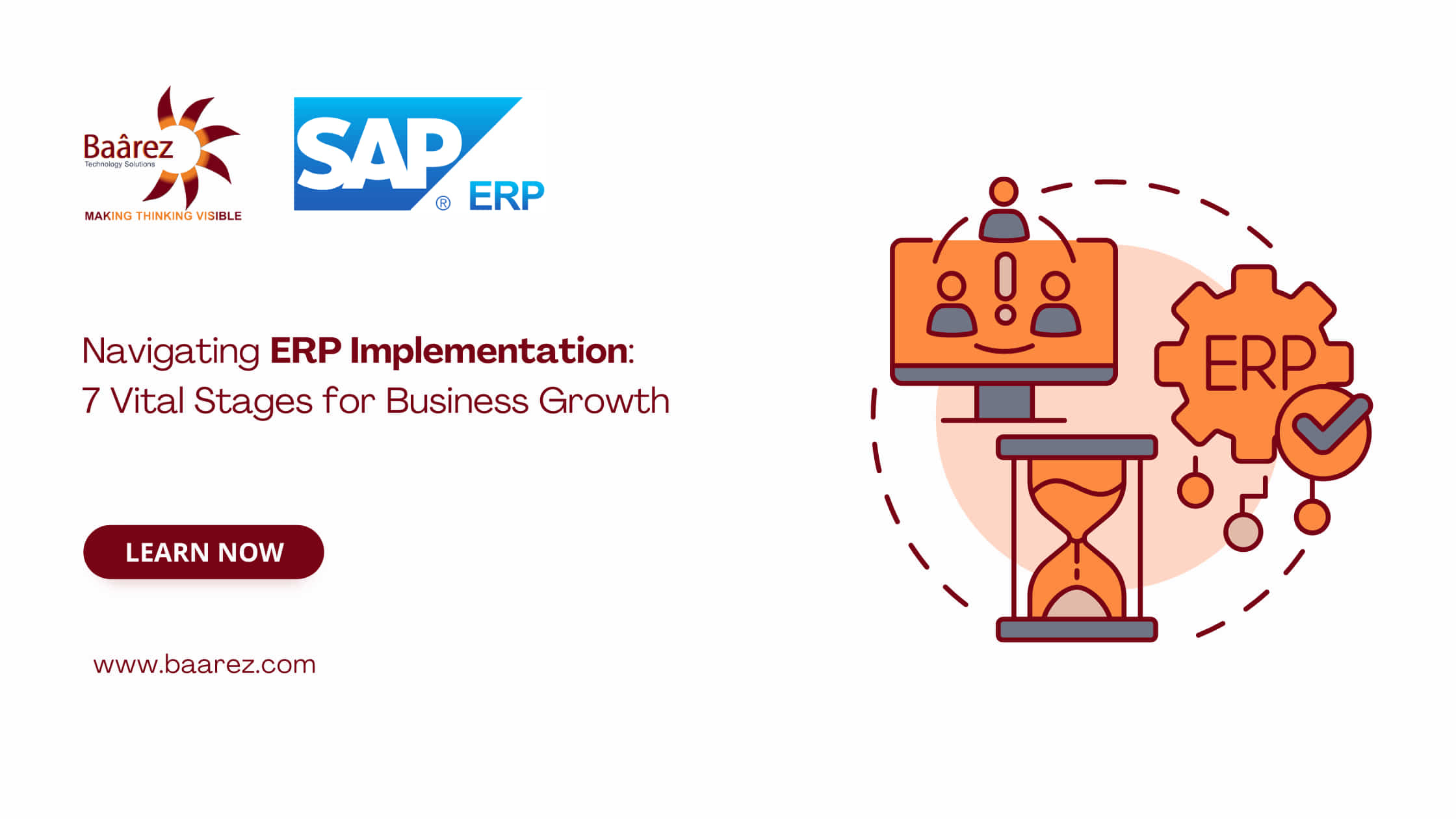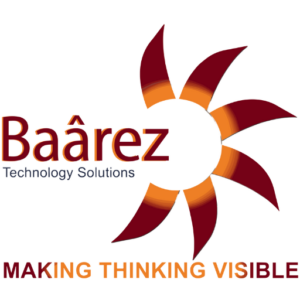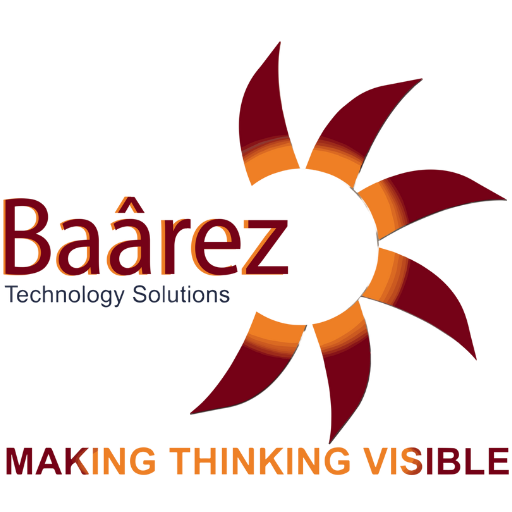
Table of Contents
ToggleIntroduction
Enterprise Resource Planning (ERP) systems are integral to modern business operations, helping organizations streamline processes and improve efficiency. This blog will guide you through the seven key phases of ERP implementation, ensuring a successful and smooth transition. Baarez Technology Solutions specializes in ERP Consulting Services, offering expertise in selecting and implementing the right ERP system, including Microsoft ERP Consulting Services, tailored to your business needs. This guide is intended for business owners, IT managers, and decision-makers considering ERP systems to enhance their operations.
Phase 1: Planning and Discovery
The first phase involves a thorough assessment of your business needs. This includes analyzing current processes, identifying inefficiencies, and defining clear, measurable objectives for the ERP system. Stakeholder involvement is crucial; assembling a cross-functional team ensures diverse input and comprehensive planning. Baarez Technology Solutions excels in this phase by providing ERP Consulting Services that help businesses align their ERP goals with their overall strategy, ensuring top management support and a unified approach.
Phase 2: Selection of the Right ERP System
Selecting the appropriate ERP system requires detailed research and evaluation. Businesses need to consider various types of ERP systems—cloud-based, on-premises, or hybrid—and their key features. Vendor comparison is essential, focusing on cost, scalability, support, and customization. Baarez Technology Solutions offers specialized Microsoft ERP Consulting Services, helping businesses create a shortlist of potential ERP vendors and guiding them through the Request for Proposal (RFP) process to find the best fit.
Phase 3: System Design and Customization
In this phase, businesses map their existing processes to the new ERP system, identifying necessary customizations. Designing the system architecture and planning for integration with existing systems and data migration are critical steps. User interface and experience design ensure the system is user-friendly. Baarez Technology Solutions provides ERP Consulting Services to help design a technical blueprint, ensuring the new ERP system meets business needs and is customized for optimal performance.
Phase 4: Data Migration
Data migration involves assessing and cleaning current data to ensure accuracy and completeness. Developing a detailed migration plan, testing the process, and executing migration in phases minimizes disruption. Validating data accuracy post-migration is crucial. Baarez Technology Solutions assists with meticulous data migration planning and execution, ensuring a seamless transition to the new ERP system, particularly through their Microsoft ERP Consulting Services, which streamline this critical phase.
Phase 5: Training and Development
A comprehensive training plan is essential for successful ERP implementation. Identifying training needs for different user groups and creating a training schedule ensures all users are adequately prepared. Conducting training sessions and providing ongoing support helps users adapt to the new system. Baarez Technology Solutions offers extensive training programs as part of their ERP Consulting Services, ensuring your team is well-equipped to use the new system effectively.
Phase 6: Testing and Quality Assurance
Developing detailed test plans, including functional, performance, and security testing, is essential. Conducting tests in a controlled environment and involving key users ensures the system works as expected. Identifying and resolving issues before going live is crucial. Baarez Technology Solutions provides rigorous testing and quality assurance services, leveraging their Microsoft ERP Consulting Services to ensure the system is robust and reliable.
Phase 7: Go-Live and Post-Implementation
Final preparations for going live include communicating the plan to all stakeholders. Executing the go-live and monitoring the system closely ensures a smooth transition. Post-implementation review involves assessing the success of the implementation, gathering user feedback, and planning for future improvements. Baarez Technology Solutions offers ongoing support and continuous improvement services as part of their ERP Consulting Services, ensuring long-term success and efficiency.
Conclusion
In summary, following these seven key phases of ERP implementation can lead to significant improvements in business efficiency and operations. Baarez Technology Solutions provides expert ERP Consulting Services, including specialized Microsoft ERP Consulting Services, to guide businesses through each phase, ensuring a successful and seamless ERP implementation. Investing in a structured ERP implementation process is a strategic move for long-term growth and efficiency.


